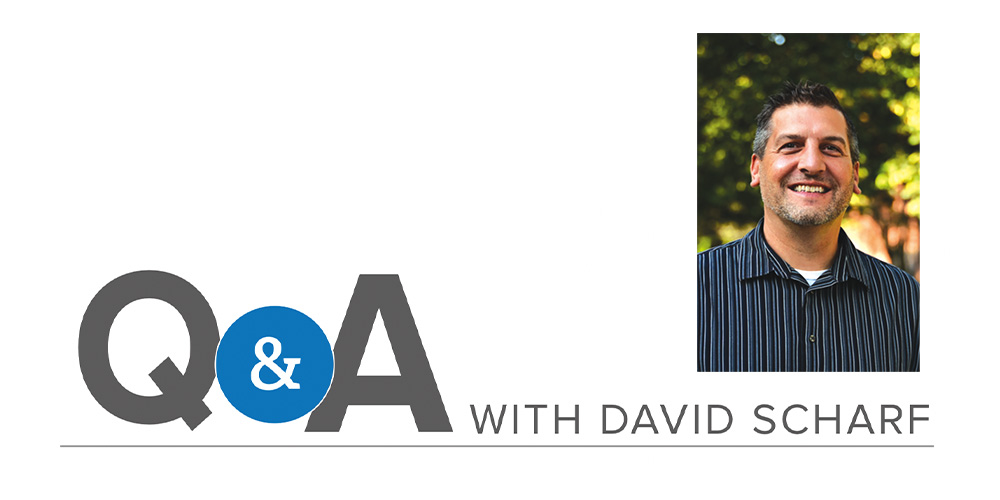 |
In the Bible, lying sometimes seems to be commended, as in the case of Rahab and the spies or the case of the Hebrew midwives. Are there times when it is okay to lie?
The first lie uttered in Scripture comes from the devil: “You will not certainly die” (Genesis 3:4). Satan lied in the Garden of Eden and has been lying ever since. Jesus said, “You belong to your father, the devil. . . . He was a murderer from the beginning, not holding to the truth, for there is no truth in him. When he lies, he speaks his native language, for he is a liar and the father of lies” (John 8:44). It’s a safe assumption that we are not to do anything the devil does!
Scripture condemns lying
The Bible does not say that it is okay to lie. Colossians 3:9 plainly says, “Do not lie to each other.” Paul encourages, “Each of you must put off falsehood and speak truthfully to your neighbor” (Ephesians 4:25). Ananias and Sapphira were put to death by God for their lie (Acts 5:1-11). Notice that God consistently forbids lying because it is destructive and hurts our neighbor.
The Eighth Commandment and Luther’s explanation state: “You shall not give false testimony against your neighbor. What does this mean? We should fear and love God that we do not tell lies about our neighbor, betray him, or give him a bad name, but defend him, speak well of him, and take his words and actions in the kindest possible way.”
So what are we to think about the account of Rahab and the spies? Or the Hebrew midwives? We need to recognize that these passages are descriptive, not prescriptive. In other words, the writer is describing what happened without explicitly condoning the lies (although Scripture does describe that God blessed both situations). Rahab lied to those pursuing the Israelite spies in Joshua chapter 2. Pharaoh ordered the Hebrew midwives to murder the Israelite baby boys when they were born, but the midwives said, “Hebrew women are not like Egyptian women; they are vigorous and give birth before the midwives arrive” (Exodus 1:19). Scripture does not condemn their lies. Instead, the Bible says, “God was kind to the midwives and the people increased and became more numerous. And because the midwives feared God, he gave them families of their own” (Exodus 1:20,21). Rahab is listed as a hero of faith in Hebrews chapter 11, and James describes her actions like this: “Was not even Rahab the prostitute considered righteous for what she did when she gave lodging to the spies and sent them off in a different direction?” (James 2:25).
Different types of lies?
While Scripture never condones lying, it also does not explicitly condemn lying in every circumstance. There are different kinds of lies. The lies of the devil and Ananias and Sapphira were selfish and self-serving. The lies of Rahab and the midwives Shiphrah and Puah were told to protect life, which God also commands. Every form of deception is not necessarily immoral.
In his commentary on Genesis, Luther notes that he agrees with the church fathers on this topic:
Augustine assumes three kinds of lies: the playful, the obliging, and the deadly. Playful lies he calls those of poets or of actors on the stage. We know that they are lying when they represent something as actually having been done; yet the lie does no harm and is even pleasing, because it entertains and provokes laughter. This, therefore, can be termed a literary sin.
The second kind of lie is the obliging one, when we lie for the sake of someone’s good. . . . This lie is called “obliging” because it not only serves the advantage of someone else, who would otherwise suffer harm or violence, but also prevents a sin. Therefore it is not proper to call it a lie; for it is rather a virtue and outstanding prudence, by which both the fury of Satan is hindered and the honor, life, and advantages of others are served. (Luther’s Works, Vol. 2, pp. 291,292)
Balancing multiple principles
Lying is forbidden in Scripture, but so is murder. The Pharisees legalistically applied Scripture to Jesus and the disciples. They criticized Jesus for letting his disciples pick grain on the Sabbath as they were walking along (something the Old Testament law allowed for!), so Jesus reminded them how Abiathar, the priest, allowed David and his companions to eat bread that only the priests were allowed to eat to save their lives. Immediately after, Jesus healed a man on the Sabbath and stated: “I ask you, which is lawful on the Sabbath: to do good or to do evil, to save life or to destroy it?” (Luke 6:9). Later in Luke 14:5,6, Jesus asked the Pharisees, “ ‘If one of you has a child or an ox that falls into a well on the Sabbath day, will you not immediately pull it out?’ And they had nothing to say.” The answer to Jesus’ rhetorical question is, “Of course, I would! It is always lawful to do good and save life!”
In a sinful world, sometimes we may need to balance multiple scriptural principles and choose to help our neighbor in the best possible way. The midwives’ purpose, as well as Rahab’s, was to protect life. They chose what was in line with God’s will. They chose to “obey God rather than human beings!” (Acts 5:29). Their consciences wouldn’t let them do otherwise (Romans 14:23).
What if you were harboring Jews during the war in Nazi Germany, and the German SS burst through the door and asked if you were shielding Jews? To obey the Fourth Commandment—and also not to lie—you should tell them the truth. To obey the Fifth Commandment, you should not tell them. There seems to be a contradiction, but there isn’t. The question is, “How do I give glory to God and show love for my neighbor at the same time?” You recognize that they are going to harm those Jews, therefore you must obey God rather than people and not give away their position. You would turn the German SS away by saying, “No one is here,” wouldn’t you? Thankfully, decisions like these are very rare today. Likely, many people will never be put into such a situation.
This discussion of what constitutes a harmful lie ought to be entered into cautiously. Not every Christian will agree on every decision and application of God’s Word in our lives. The sinful world we live in makes that impossible. Sometimes we may act and immediately pray, “Lord, I was trying to glorify you with this decision. Please forgive any wrongdoing on my part and bless it.”
Finally, this is our great comfort: “If anybody does sin, we have an advocate with the Father—Jesus Christ, the Righteous One. He is the atoning sacrifice for our sins, and not only for ours but also for the sins of the whole world” (1 John 2:1,2).
Ask a question> forwardinchrist.net/submit.
Author: David Scharf
Volume 111, Number 03
Issue: March 2024
- Q&A: What would Jesus think about all the different Christian denominations?
- Q&A: Are there times when it is okay to lie?
- Q&A: What advice does the Bible have for single people?
- Q&A: How do I know I am elected by God?
- Q&A: Why is Pontius Pilate immortalized in our creeds?
- Q&A: How does remembering my baptism help with the guilt I carry?
- Q&A: Do parts of the Bible teach works righteousness?
- Q&A: How can I overcome my struggle with lust and pornography?
- Q&A: How should I help my child struggling with same-sex attraction?
- Q&A: Should Christians pray to saints?
- Q&A: Is anger sinful?
- Q&A: How can parents encourage adult children who wander from the faith?
- Q&A: Does the doxology belong in the Lord’s Prayer?
- Q&A: Is God fair?
- Q&A: When we pray, “Your kingdom come,” what are we praying for?
- Q&A: How can I better manage what God has given me this year so that I glorify him?
- Q&A: What are ways to glorify God besides singing in church?
- Q&A: I have no special gifts, and I mess up all the time. Does God really need me?
- Q&A: How do I overcome the feeling that my life has no purpose and I don’t make a difference?
- Q&A: My friend died and was not a professing Christian. What do I say to the family?
- Q&A: How can my mother and I forgive my father for being unfaithful and causing my parents to divorce?
- Q&A: Why were demon possession, gifts of healing, and gifts of tongues more prevalent in biblical times?
- Q&A: Is Christianity the only religion that gives the certainty of heaven?
- Q&A: If people go to hell, isn’t it their fault because God gave them free will and they rejected him?
- Q&A: Why are the 40 days between Jesus’ resurrection and his ascension important for the disciples and for us?
- Q&A: Can you explain Jesus’ words to the wailing women he met on his way to be crucified?
- Q&A: What if spouses don’t “love” each other anymore?
- Q&A: Is it wrong to have a cross with Jesus’ body on it?
- Q&A: Is our time of grace really unchangeable?
- Q&A: I know that we are saved by grace apart from works, but how can it be that easy?
- Q&A: Are there degrees of glory in heaven as a reward for good works?
- Q&A: Do Lutherans take the Bible literally and teach millennialism?
- Q&A: Are there different interpretations of the Bible?
- Q&A: How can we be sure the Bible includes what God originally gave us?
- Q&A: Why does it seem like Christianity is so negative?
- Q&A: How can I explain how Jesus’ resurrection is possible and if the Bible is reliable?
- Q&A: Is it okay to live together if we are planning to get married?
- Q&A: How is the Bible God’s Word?
- Q&A: Were we “created to make a difference”?
- Q&A: Am I being judgmental if I point out someone’s sin?
- Q&A: Do I need to read the Bible to have a relationship with God?
- Q&A: Can a Christian vote for a political candidate who supports abortion?
- Q&A: Does God really care?
- Q&A: Does it really matter how God made the world?
- Q&A: Does God send people to hell?
- Q&A: Is death natural?
- Q&A: How can I forgive and forget?
- Q&A: Does God help those who help themselves?
- Q&A: How can we say that the Old Testament God is the same as the New Testament God?
- Q&A: Is Jesus the only way to get to heaven?
- Q&A: Doesn’t God want me to be happy?
- Light for our path: Does God hate us?
- Light for our path: What kind of comfort can you give someone when a loved one commits suicide?
- Light for our path: What does a submissive wife in a Christian marriage look like?
- Light for our path: Is it a sin to want to die from a terminal illness?
- Light for our path: What advice can you give about applauding in church?
- Light for our path: Can you please explain Matthew 5:20?
- Light for our path: What is karma?
- Light for our path: Can the devil personally be tempting me and a lot of other people at exactly the same time?
- Light for our path: Does the word Easter refer to Ishtar, the Babylonian fertility goddess?
- Light for our path: What role does emotion play in contrition?
- Light for our path: What does the white stone in Revelation 2:17 mean?
- Light for our path: Is the cross symbol now anti-Christian?
- Light for our path: Were Joseph and Mary engaged or married when Joseph learned of Mary’s pregnancy?





